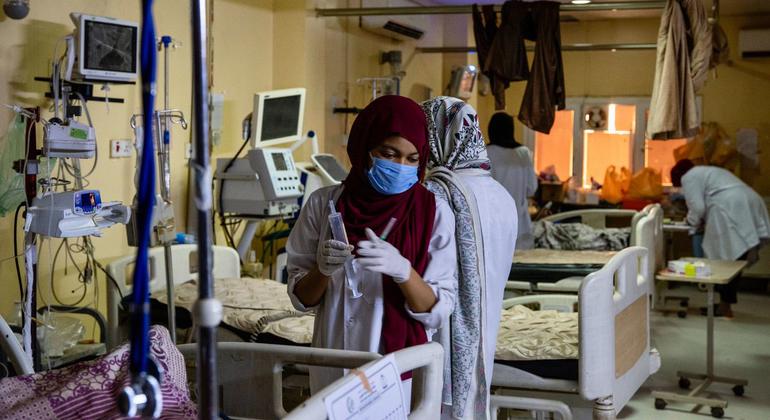In his message for the day, Secretary-General António Guterres reiterated the importance of protecting healthcare facilities as a “fundamental tenet” of international humanitarian law. This law governs the conduct of war and aims to ensure the safety and well-being of civilians, including access to essential medical services. Guterres emphasized that attacks on hospitals and healthcare facilities, as well as the targeting of healthcare workers, can severely limit access to medical care and psychosocial support for survivors of conflict.
The long-term impact of such attacks on women and girls, as well as men and boys, is significant. Women and girls who experience sexual violence may become pregnant from rape and require immediate sexual and reproductive healthcare. Men and boys may also be at risk of increased isolation if they cannot access appropriate care. These consequences highlight the urgent need to protect healthcare facilities and healthcare workers in conflict zones.
The far-reaching impacts of attacks on healthcare facilities are as disturbing as their frequency. In Sudan, 67 percent of health facilities in areas affected by war have closed, while in Haiti, six out of ten hospitals are barely operational due to escalating violence in the capital, Port-Au-Prince. Such attacks leave survivors of sexual violence without access to critical medical care and services to mitigate the risk of unwanted pregnancy or sexually transmitted infections, including HIV.
Pramila Patten, Special Representative of the Secretary-General on sexual violence in conflict, emphasized that such attacks are unacceptable violations of international law. She stressed that the right to seek medical assistance, especially in times of crisis, should never be denied. Patten called for global action to ensure the inviolability of healthcare facilities, even in the midst of war, in order to protect the basic human rights of survivors of sexual violence.
The UN Population Fund (UNFPA) highlighted the devastating impacts of sexual violence, particularly in conflict settings. The agency noted that the voices of women and girl survivors often remain unheard in decisions on peace, security, and humanitarian assistance, isolating them from solutions. UNFPA called for survivors to be included as leaders in humanitarian response programming, as they are best placed to create solutions for the challenges they face. The agency also called for greater funding for protection and support programs for survivors of sexual violence in conflict.
Sexual violence in conflicts is considered a war crime, and perpetrators must be held accountable for their actions. The sexual and reproductive health agency emphasized that few cases of conflict-related sexual violence are reported, and even fewer are investigated or prosecuted. It is crucial to address sexual violence in conflicts and ensure that perpetrators are brought to justice.
Overall, the protection of healthcare facilities and healthcare workers in conflict zones is essential to ensure access to critical medical care for survivors of sexual violence. The international community must take action to prevent attacks on healthcare facilities, support survivors of sexual violence, and hold perpetrators accountable for their crimes. By prioritizing the safety and well-being of individuals affected by conflict, we can work towards a more just and peaceful world for all.









